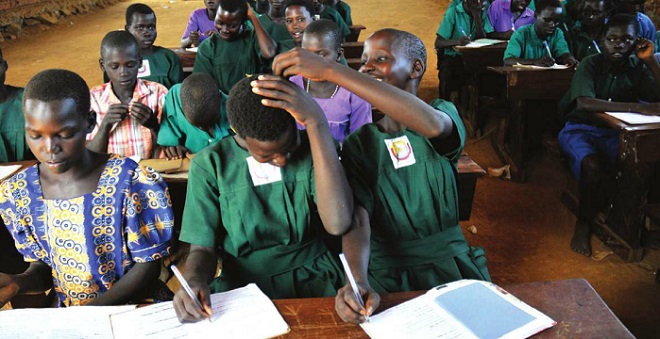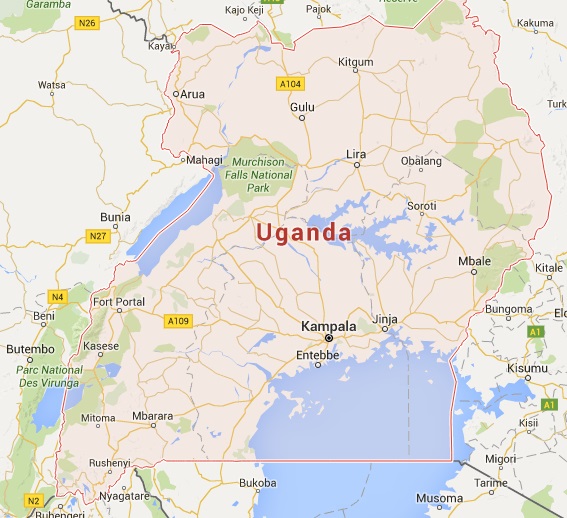Dropping out or kicked out?
This year, in January, the Uganda National Examinations Board (UNEB) released the Primary Leaving Examinations. As you would expect, there were celebrations as the government authorities indicated that there had been an improvement from last year’s performance. Such statements often make headlines and bury the space for discussion on the thousands that fail and never make the headlines, writes Henry Mutebe.
According to the PLE results of 2015, out of the over 600,000 children who registered, a glaring 82,973 children failed completely and could not be graded. Another 85,071 passed in the last grade/fourth division. While we should celebrate the success, the number of children failing should open up a discussion on the health of the education system.

That over 80,000 children fail a national exam and there is visibly no concern or outrage about it speaks volumes. This is not just a problem for those children or their parents but a national disaster. It serves to remind us of the need to ask ourselves why these thousands of children failed.
This problem is far more than a result. It is a loss, of all the resources we have invested in these children for the last seven years and more importantly, a potential human resource we may lose in the future.
According to the results, a total of about 621,401 candidates from 12,673 schools registered for PLE in 2015. Of this 478,585 (77%) were Universal Primary Education (UPE) beneficiaries. The results also showed that students from private schools performed better than students from UPE schools. Most worryingly, over 2000 schools in Eastern Uganda and thousands in the North did not register any students in first grade.
The regional performance confirms earlier reports and research on poverty rates of the different regions which put the North and the East below others. This sort of economic inequality observed in these regions has started manifesting in PLE results. This situation is completely unsustainable and should make us uncomfortable and stimulate debate and further discussion on a number of issues in Education.
That over 80,000 children fail a national exam and there is visibly no concern or outrage about it speaks volumes. This is not just a problem for those children or their parents but a national disaster.
The differences in performance which collate with poverty indicators highlight the need to address issues of economic injustice that is prevalent in Uganda. Many children who come from poor families as the Global Monitoring Report of 2015 indicated, are more likely not to go to school than the children from wealthier households, and five times more likely not to complete primary school. In the long run, there is going to be structural generational poverty as some regions continue to progress while others lag behind.
Many schools are underfunded under the current capitation grant scheme where schools receive support according to number of children enrolled. Some schools in the North and East have fewer children because of issues of child labour, civil strife, and poverty.
The schools may not have proper funding unless a different criterion is used to understand their needs. It is in such schools that parents cannot pay for lunch or uniform and as such children drop out of school. Therefore, some of these schools have maintained lower numbers of children in school. There is need to reflect on the strategic needs of these schools and the children so that more funding is availed to them.
Children from poor socio-economic backgrounds have extra needs and need special attention of government. To be able to provide quality equitable education, the government needs to map and appreciate the unique position of some regions, their context, special needs and design specific interventions to address those issues that perpetuate inequality in access to quality education. Most UPE schools are underfunded, poorly supervised and teachers not given adequate tools.

Irony of English
The other irony of the results though was that English was the best done Subject. However, in this ‘best done subject’, only 10% got a distinction, and 59.7% got a credit. Ideally, any student who did not get a credit will or may have probably had issues understanding the questions asked or even expressing himself or herself.
It calls for further discussions on the question of the language of instruction in schools. In English subject alone, 9.9% of the children could not be graded. Interestingly this number had a close correlation with the overall number of children who failed and could not be graded (which was 13.8%).
These statistics speak to the importance of the medium of instruction in schools, an issue which has received very little attention from stakeholders. Language is at the heart of learning and unless learners can use it properly, then there will be barriers to learning and thinking.
When results are released, authorities should interest themselves in investigating whether learners did not understand the task because of the language or they simply had limited knowledge of subject content. If the later were true, then we have to still find out why these learners had limited subject content.
Language is at the heart of learning and unless learners can use it properly, then there will be barriers to learning and thinking.
Was the planned or required material delivered? Are teachers proficient in English and have adequate subject content knowledge? How do we know they know? Do we conduct any assessments to evaluate the knowledge of our teachers on the subject content for their subject areas? We need to investigate the barriers to learning. We cannot afford to keep these numbers of children failing. It certainly cannot be these thousands.
In Uganda, English was adopted at independence as the official language despite only a minority of the population of Uganda being able to use it. From then on, it has come to be seen as the only alternative to bringing unity and acquiring knowledge and skills.
Due to our relationship with our colonial masters and what goes with it, we have largely stuck to using this language despite our children failing every year. A lot of knowledge remains in English to the disadvantage of those who cannot understand it. Teachers are expected to switch from the local language in grade four. However, in practice, most teachers often start delivering subject content at a far earlier stage than is recommended and as such, learners progress to higher classes without mastering the language in which all subject content will be delivered.
This means that for most learners, most discipline-specific vocabulary is too complicated for their age and in other subjects is introduced before they gain the ability to master it and or be able to use it. Most learners as a 2012 UWEZO report showed, had not mastered basic grammar and punctuation by Primary seven. The survey showed that by Primary Seven, 20% of pupils could not pass the Primary Two level test.
 The Independent Uganda: You get the Truth we Pay the Price
The Independent Uganda: You get the Truth we Pay the Price


